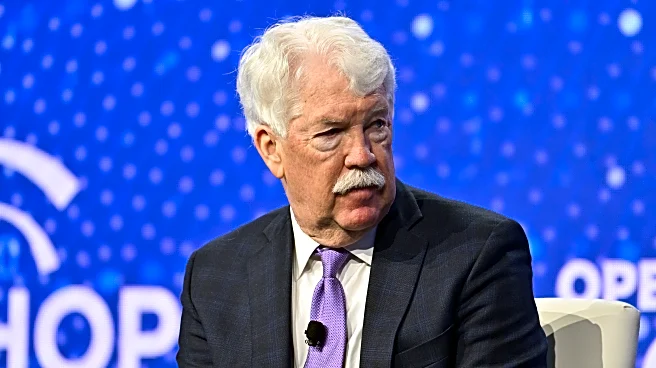What's Happening?
Former Congressman George Santos, recently pardoned by President Trump, made headlines with a controversial statement during a CNN interview. Santos, who had his sentence commuted by Trump, was questioned about his intentions to return stolen funds and
his future plans. He expressed no intention to return the money unless legally required and mentioned a desire to work on prison reform. Santos defended Trump's decision to commute his sentence, stating that even if Trump had pardoned Jesus Christ, he would still face criticism. The interview concluded shortly after this remark.
Why It's Important?
The commutation of George Santos's sentence by President Trump has sparked debate over the use of presidential pardons and the message it sends regarding accountability and justice. Santos's comments highlight the polarizing nature of Trump's decisions and the ongoing scrutiny of his actions. This situation raises questions about the ethical implications of pardons and their impact on public trust in the justice system. The controversy also reflects broader political divisions and the challenges of addressing corruption and reform within the political landscape.
Beyond the Headlines
Santos's remarks and the subsequent media coverage underscore the complex interplay between politics, media, and public perception. The use of religious imagery in political discourse can evoke strong reactions and highlight cultural sensitivities. This incident may prompt discussions about the role of media in shaping narratives and the responsibilities of public figures in their communications. The broader implications for political accountability and the integrity of democratic institutions remain a critical area of concern.
















